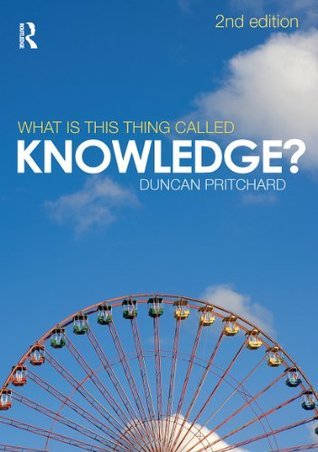What do you think?
Rate this book


What is Knowledge? Where does it come from? Can we know anything at all? This lucid and engaging introduction grapples with these central questions in the theory of knowledge, offering a clear, non-partisan view of the main themes of epistemology including recent developments such as virtue epistemology and contextualism.
Duncan Pritchard discusses traditional issues and contemporary ideas in thirteen easily digestible sections, including:
What is this thing called Knowledge? contains many helpful student-friendly features including study questions, annotated further reading, a glossary and a guide to web resources. Clear and interesting examples are used throughout. This is an ideal first textbook in the theory of knowledge for undergraduates taking a first course in philosophy.
198 pages, Kindle Edition
First published September 30, 2006